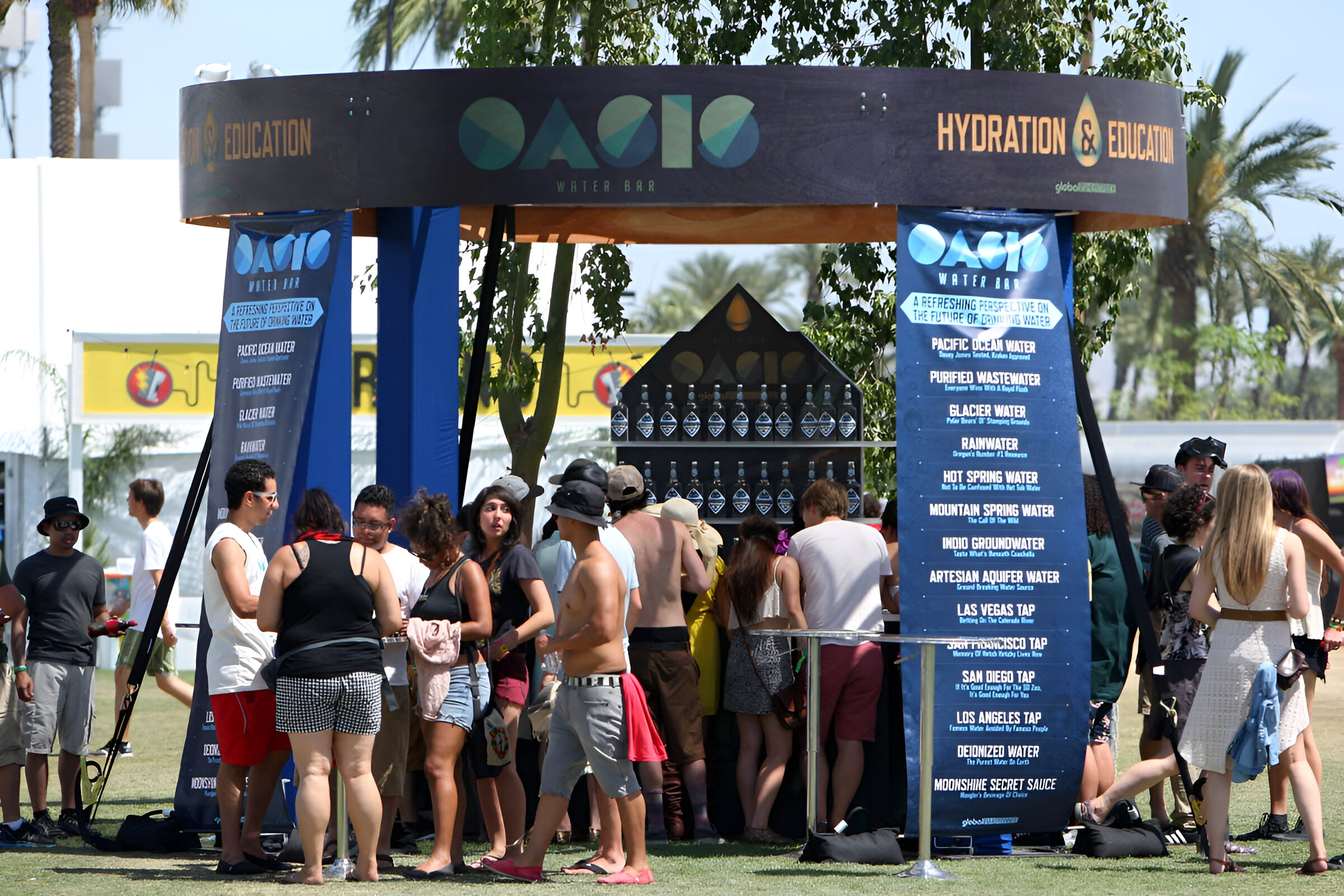The California desert transformed into contested cultural territory last weekend as Coachella kicked off the 2025 festival season with battle lines drawn between pure entertainment and radical engagement. Forget flower crowns and influencer photo ops – this year’s festival pulsed with urgent political undercurrents that made even the dust feel charged with purpose.
When Bernie Sanders emerged to introduce Clairo on Saturday afternoon, the moment crystallized everything Coachella has evolved into: a high-stakes platform where art and activism collide with seismic force. The 83-year-old senator addressed the crowd against the backdrop of desert mountains, declaring that “the future of America relies on your generation.” The crowd’s response – part surprise, part reverence – spoke volumes about a generation encountering political messaging in spaces typically reserved for escapism.
Spectacle Meets Substance
Lady Gaga headlined opening night with a 110-minute spectacle that dazzled but ultimately played it safe in this charged atmosphere. Her performance – technically flawless and visually sumptuous – felt almost quaint compared to what followed. Like watching someone bring spectacular fireworks to a Coachella 2025 lineup revolution already in progress.
(Remember when music festivals were just about getting sunburned while hunting for your friends in identical bucket hats?)
Political Punk Revival
Saturday night delivered standout performances that electrified the crowd, turning the main stage into a sweaty communion of bodies and beats. The festival’s energy surged through each set, offering something increasingly rare in digital life: a collective, unfiltered experience that can’t be replicated on social media.
Green Day, those aging punks who once soundtracked suburban rebellion, reclaimed their righteous anger by altering lyrics to confront contemporary politics. When Billie Joe Armstrong changed “American Idiot” lyrics from “I’m not part of a redneck agenda” to “I’m not part of the MAGA agenda,” the crowd split into factional response – a microcosm of national division played out between beer tents and portable toilets.
Beyond the Music
Beyond music, the festival’s social landscape reflected its evolving identity. The once-coveted Neon Carnival after-party – that Hunger Games of exclusivity where celebrities perform, having fun – continued its tradition with DJ Pee.Wee (Anderson .Paak) at the decks. Meanwhile, the festival grounds offered various brand activations and experiences for those seeking refuge from the musical programming.
Technical issues briefly challenged Megan Thee Stallion’s performance, but she maintained the crowd’s energy by bringing out surprise guests Queen Latifah and Victoria Monét. Together, they created a multi-generational celebration of women in hip-hop that transcended any production hiccups. The moment exemplified how resilience trumps perfection in live performance, a lesson lost on countless auto-tuned festival acts.
Cultural Crossroads
Post Malone closed weekend one with a genre-bending 90-minute set that married country twang with hip-hop swagger. His performance felt like watching America’s conflicted identity crisis play out in real time – traditional values colliding with progressive expressions while somehow finding harmony in their contradictions.
For all its evolution, Coachella remains a mirror reflecting youth culture at itself – except now, that reflection shows less concern with looking good and more determination to say something. In a desert known for mirages, that shift toward substance feels like the most revolutionary development of all.


























